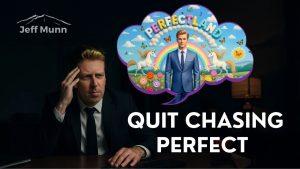
If you’ve ever hiked in the mountains, you’ve probably hit a false summit. From below, you’re sure you’ve spotted the top. You push hard, heart pounding, legs burning, only to arrive and realize—you’re not there yet. The peak is still further on, hidden until now.
In business and in life, the same thing happens.
At a recent weekend on a Colorado ranch, I spent time with a group of founders who had already reached what most people would call the summit. They had sold companies and along that had gotten validation, recognition, and in many cases, a lot of money. And almost to a person, they told me some version of this:
“I thought it would finally make me feel like I was enough. Instead, it was the opposite. After a few days, I fell into a valley of despair. Disillusionment. Who am I now? If this isn’t it, what is?”
That’s the sting of a false summit. You think the climb is over, only to find a whole new stretch of trail you hadn’t planned for. And it’s overwhelming.
The financial success is real, and it matters. It buys freedom from: freedom from financial worry, freedom from needing to work again, freedom from the stress of survival. All of that is worth celebrating.
But it’s only one layer.
The deeper, more enduring freedom is freedom to—
- Freedom to say what you truly feel.
- Freedom to do what you actually want to do, to create what is in your heart, instead of what others expect.
- Freedom to be more, or just to simply be.
At our core we are infinite creativity. Most of us use that creativity to prove ourselves, or to fight against something.
I know for many years I was so attuned to what others wanted, that I had a hard time accessing what I wanted.
After doing all the things I was told would make me happy and still feeling empty, I began to see that the freedom I wanted wasn’t outside me, but inside. That I could free myself of the prison of others’ expectations. The prison that I had actually built.
You have built some version of this prison, too, and you have always had the key.
When you see you have always been free, you don’t stop creating. But you do create from a different place—one that isn’t about proving, but about expressing.
Whatever you call that—freedom, or mission, or purpose—is the real summit you’ve been looking for all along.
Do you recognize any “false summits” in your own journey? What looked like the finish line, only to reveal itself as just another ridge on the climb?


